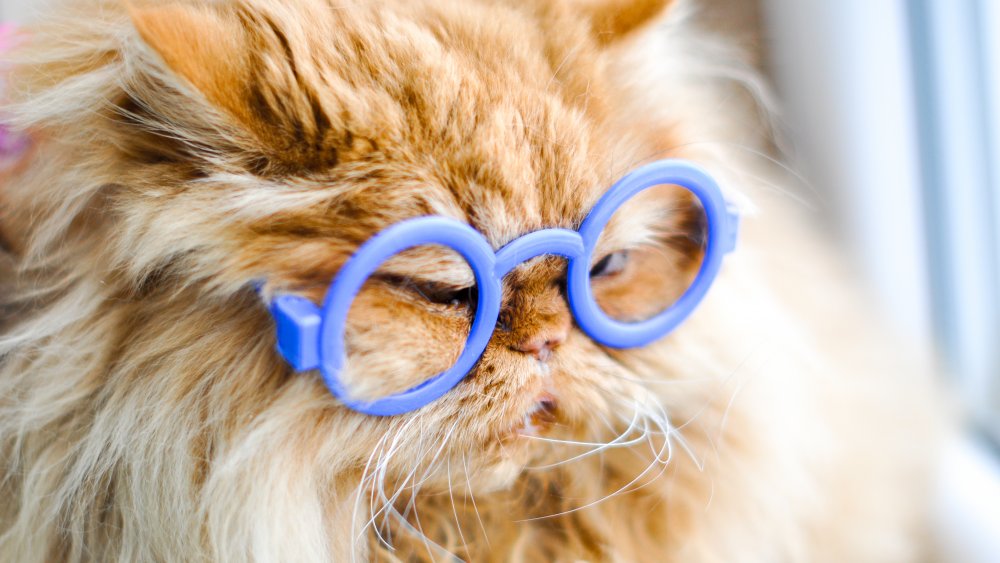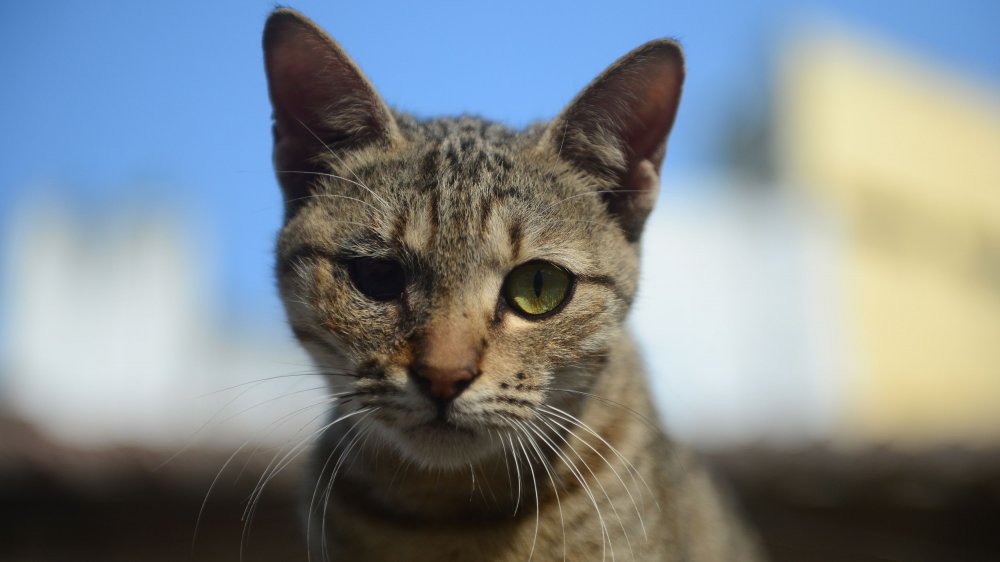The Cat Breed With The Shortest Lifespan
Cats remain one of the only staples of the American day-to-day experience that you can still get for free out of a box on the street. They're also a diverse group, with different cat appreciation societies recognizing anywhere from 43 to 71 different individual breeds, including strong breeds, clean breeds, and even breeds that like water. While humanity has never taken the hedge clippers to feline genetic structure with the same aplomb reserved for dogs, people have managed to create a decent range of visual weirdness in cats, ranging from the hairless Donskoy, to the allergen-coated Himalayan, to the one cat breed that looks like a bat escaped from the set of Gremlins 2: The New Batch. As far as longevity goes, they all tend to do alright, lasting ten to fifteen years on average, according to PetMD.
But is there a cat which, compared with the all-day-sucker mortal staying power of its cousins, is more like an impermanent Pop Rock? What's the best cat for people who don't really want to own a cat for a long time?
Introverted cats FTW
There are a couple of ways to look at it. Technically, yes, there's a cat breed whose life is a mere flash in the comparative pyrotechnic display of feline longevity. That's the Manx, which the Spruce Pets says is a troublingly short lived kitty, lasting between eight and fourteen years on average. That said, when looking at cat lifespans, it has less to do with breed than you might think. Actually, it's a little inspiring to know that a cat's lifespan has less to do with genetics, and more to do with where it's living.
"It's not the years, honey, it's the mileage." These words were uttered by acclaimed archaeologist and verified dog person Doctor Henry Jones, Jr, but they remain apropos when referring to kitties. As VetWest Animal Hospitals points out, the biggest determining factor in a cat's lifespan is whether or not it spends most of its time in the great outdoors. Outside cats don't last as long, and for understandable reasons: they're more susceptible to predators, disease, and a bad case of getting hit by a 1998 Buick Skylark, compared to their indoor counterparts.

